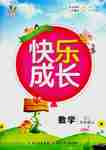题目内容
4.Don't play a trick on Mr.Zheng.分析 别捉弄张先生.
解答 答案:trick
本题考查固定短语play a trick on 意思是捉弄.
点评 考试掌握固定短语play a trick on 意思是捉弄.

练习册系列答案
 优质课堂快乐成长系列答案
优质课堂快乐成长系列答案
相关题目
15.William Wordsworth wrote that"the human mind is capable of excitement without the application of violent stimulants(刺激)".And it appears that simply reading those words proves his(36)A.
Researchers at the University of Liverpool found the works of Shakespeare and Wordsworth and (37)Bhad a beneficial effect on the mind.It can (38)Cthe reader's attention and trigger(触发) moments of self-reflection.
Using scanners,they (39)Cthe brain activity of volunteers as they read pieces of classical English literature both in their(40)A form and in a modern translation.
And,according to the Sunday Telegraph,the experiment showed the more(41)C prose(散文) and poetry(42)D far more electrical activity in the brain than the easier versions.
The research also found poetry,(43)C ,increased activity in the right part of the brain,an area(44)B with"autobiographical(自传式的) memory",which helped the reader to (45)A on their own experiences.The researchers said this meant the (46)C were more useful than self-help books.
The brain(47)B of 30 volunteers were watched in the first part of the research as they read Shakespeare in different(48)C.
In one example,volunteers read a line from King Lear,"A father and a gracious aged man:him have you madded",before reading the (49)B version:"A father and a gracious aged man:him you have annoyed".Shakespeare's use of"mad"as a(n)(50)D caused a higher level of brain activity than the straightforward prose.
The next stage of the research was looking at the(51)B to which poetry could affect(52)D and provide therapeutic(治疗的) benefit.Volunteers'brains were scanned while reading four lines by Wordsworth,and four"translated"lines were also provided.
The first version caused more brain activity,(53)B not only the left part of the brain connected with language,but also the right part that relates to autobiographical memory and emotion.
"Poetry is not just a (54)A of style.It is also about deep versions of experience that (55)B the emotional to the cognitive(认知的),"said Prof Davis,who will present the findings at the North of England education conference in Sheffield this week.
Researchers at the University of Liverpool found the works of Shakespeare and Wordsworth and (37)Bhad a beneficial effect on the mind.It can (38)Cthe reader's attention and trigger(触发) moments of self-reflection.
Using scanners,they (39)Cthe brain activity of volunteers as they read pieces of classical English literature both in their(40)A form and in a modern translation.
And,according to the Sunday Telegraph,the experiment showed the more(41)C prose(散文) and poetry(42)D far more electrical activity in the brain than the easier versions.
The research also found poetry,(43)C ,increased activity in the right part of the brain,an area(44)B with"autobiographical(自传式的) memory",which helped the reader to (45)A on their own experiences.The researchers said this meant the (46)C were more useful than self-help books.
The brain(47)B of 30 volunteers were watched in the first part of the research as they read Shakespeare in different(48)C.
In one example,volunteers read a line from King Lear,"A father and a gracious aged man:him have you madded",before reading the (49)B version:"A father and a gracious aged man:him you have annoyed".Shakespeare's use of"mad"as a(n)(50)D caused a higher level of brain activity than the straightforward prose.
The next stage of the research was looking at the(51)B to which poetry could affect(52)D and provide therapeutic(治疗的) benefit.Volunteers'brains were scanned while reading four lines by Wordsworth,and four"translated"lines were also provided.
The first version caused more brain activity,(53)B not only the left part of the brain connected with language,but also the right part that relates to autobiographical memory and emotion.
"Poetry is not just a (54)A of style.It is also about deep versions of experience that (55)B the emotional to the cognitive(认知的),"said Prof Davis,who will present the findings at the North of England education conference in Sheffield this week.
| 36.A.point | B.attitude | C.mind | D.advice |
| 37.A.the way | B.the like | C.the likely | D.the kind |
| 38.A.break | B.focus | C.catch | D.fix |
| 39.A.participated | B.interrupted | C.monitored | D.controlled |
| 40.A.original | B.traditional | C.conventional | D.ancient |
| 41.A.attractive | B.beneficial | C.challenging | D.emotional |
| 42.A.call off | B.put off | C.take off | D.set off |
| 43.A.for example | B.on occasion | C.in particular | D.in contrast |
| 44.A.mixed | B.concerned | C.fixed | D.conflicted |
| 45.A.reflect | B.agree | C.depend | D.take |
| 46.A.average | B.modern | C.classic | D.academic |
| 47.A.records | B.responses | C.recalls | D.receptions |
| 48.A.moods | B.manners | C.forms | D.times |
| 49.A.shorter | B.simpler | C.better | D.deeper |
| 50.A.adjective | B.noun | C.adverb | D.verb |
| 51.A.extension | B.degree | C.amount | D.scale |
| 52.A.philosophy | B.biology | C.sociology | D.psychology |
| 53.A.raising up | B.waking up | C.taking up | D.making up |
| 54.A.matter | B.mark | C.manner | D.mass |
| 55.A.prefer | B.add | C.cater | D.refer. |
12.James insisted that Mary _____ to see a doctor and Mary insisted that she _____ so.( )
| A. | went; did | B. | go; does | C. | goes; had done | D. | go; had done |